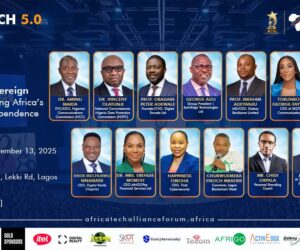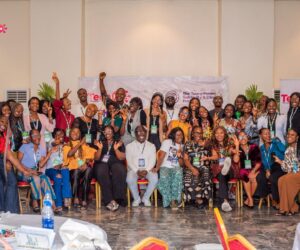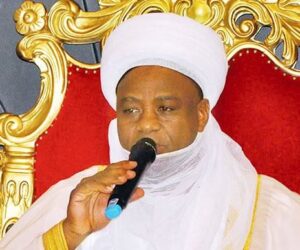The Nigerian Senate has today confirmed the appointment of a new board for the Nigerian Communications Commission (NCC). The confirmation marks a significant step in strengthening regulatory oversight of the nation’s telecommunications industry.
Following a successful screening by the Senate Committee on Communications, Idris Ibikunle Olorunnimbe, representing the South West, was confirmed as the Chairman of the NCC Board during Tuesday’s plenary session. His confirmation signals renewed leadership direction for the commission, which plays a central role in driving Nigeria’s digital transformation agenda.
Alongside Olorunnimbe, the Senate also approved the appointments of Maryam Bayi (North East), Senator Ramoni Olalekan Mustafa (South West), and Ikechukwu Ugwuegede (South East) as Non-Executive Commissioners. In addition, Princess Oforitsenere Emiko and Christopher Sandy Okorie, both representing the South South region, were also confirmed to serve on the board.

These newly confirmed officials will work alongside the NCC’s executive leadership team, which had already been cleared by the Senate. The team includes Dr Aminu Maida, the Executive Vice Chairman and Chief Executive Officer (North West); Engineer Abraham Oshadami, Executive Commissioner for Technical Services (North Central); and Rimini H. Makama, Executive Commissioner for Stakeholder Management (North Central).
What to expect from the new NCC board
Together, they will steer the NCC at a time when Nigeria’s telecoms and digital economy sectors are facing both opportunities and challenges, from expanding broadband penetration to strengthening consumer protection and cybersecurity frameworks.
Industry observers have welcomed the confirmation, describing it as a critical move toward ensuring stability and policy continuity in the regulatory body. The NCC, established under the Nigerian Communications Act of 2003, is tasked with regulating the telecommunications industry, promoting fair competition, and protecting the interests of consumers and operators alike.


With over 220 million active mobile subscriptions and growing internet usage across the country, the telecoms sector remains a key driver of Nigeria’s GDP, contributing more than 14% to the economy.
The reconstituted board will address some of the pressing issues facing the commission, such as 5G expansion, rural connectivity, digital inclusion, and the alignment of Nigeria’s telecom policies with global technological trends.
The appointments are expected to invigorate Nigeria’s telecoms regulator, ensuring effective governance and a renewed focus on innovation, transparency, and inclusive growth within the nation’s digital ecosystem.








